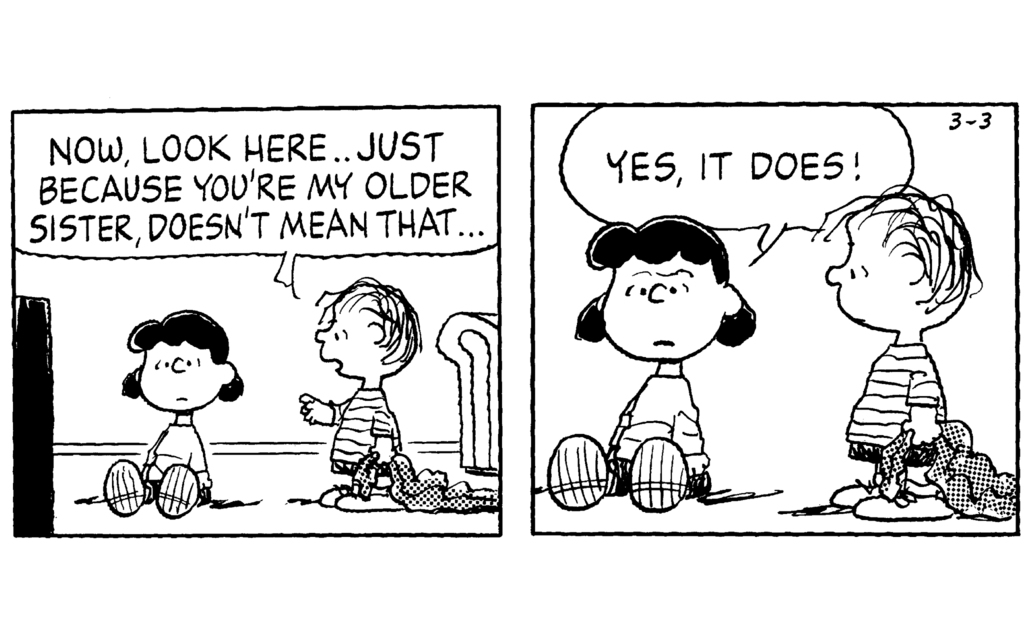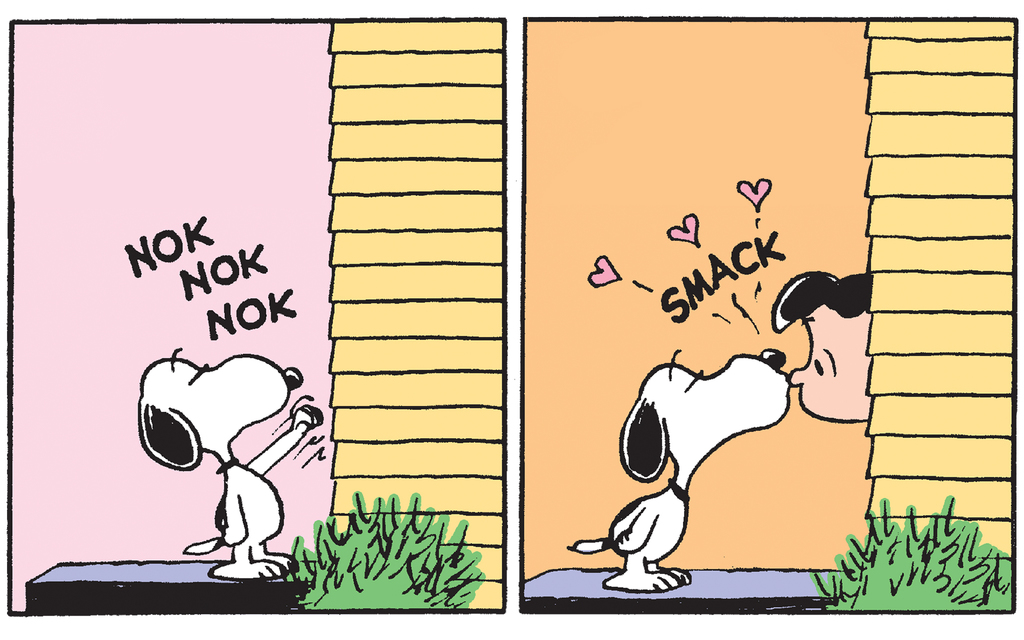Peanuts by Charles Schulz for September 20, 1981
Transcript:
Sally sits at her desk with a pencil in her mouth and a sheet of paper in her hand.<BR><BR> Charlie Brown sits next to her and watches her write, "This is my report on the letter M, which is the thirteenth letter of our alphabet."<BR><BR> He asks, "Or the twelfth if the letter 'J' is omitted." She asks,"If what?"<BR><BR> He replies, "If 'J' is omitted, then 'M' is only the twelfth letter of the alphabet." She looks up and asks, "Why would we leave out 'J'?"<BR><BR> He replies, "'J' was formerly a variant of 'I'....in the seventeenth century it became established as a consonant only, as in 'Julius' which was originally 'Julius'...thus, 'M' is only the twelfth letter of the alphabet if 'J' is omitted!"<BR><BR> She looks at the sheet of paper and says, "I can do better than that..."<BR><BR> She places the paper over his nose and walks off saying, "I'll omit the whole report!"<BR><BR>












MrJamie1062 almost 12 years ago
Actually,Sally,don’t omit the report;in fact,you could report on the whole alphabet. Charlie is right;J DID develop from I, and even now,to this day, that is why occasionally, you will see either the letter J(or more commonly,I),skipped from lettered items,so as not to risk confusing the two letters,in the lettered series. Interesting,or what?
Archistoteles almost 2 years ago
The Dutch use the “i” and “j” together as one letter (ij) which is pronounced exactly the same as “ei” which they also use. For instance “wij” (we) is pronounced the same as “wei” (meadow). This happens to be very confusing, even for the Dutch themselves. For foreigners who try to learn the language it’s almost impossible to get, also because there are no rules which to apply for the use of “ij” or “ei”.